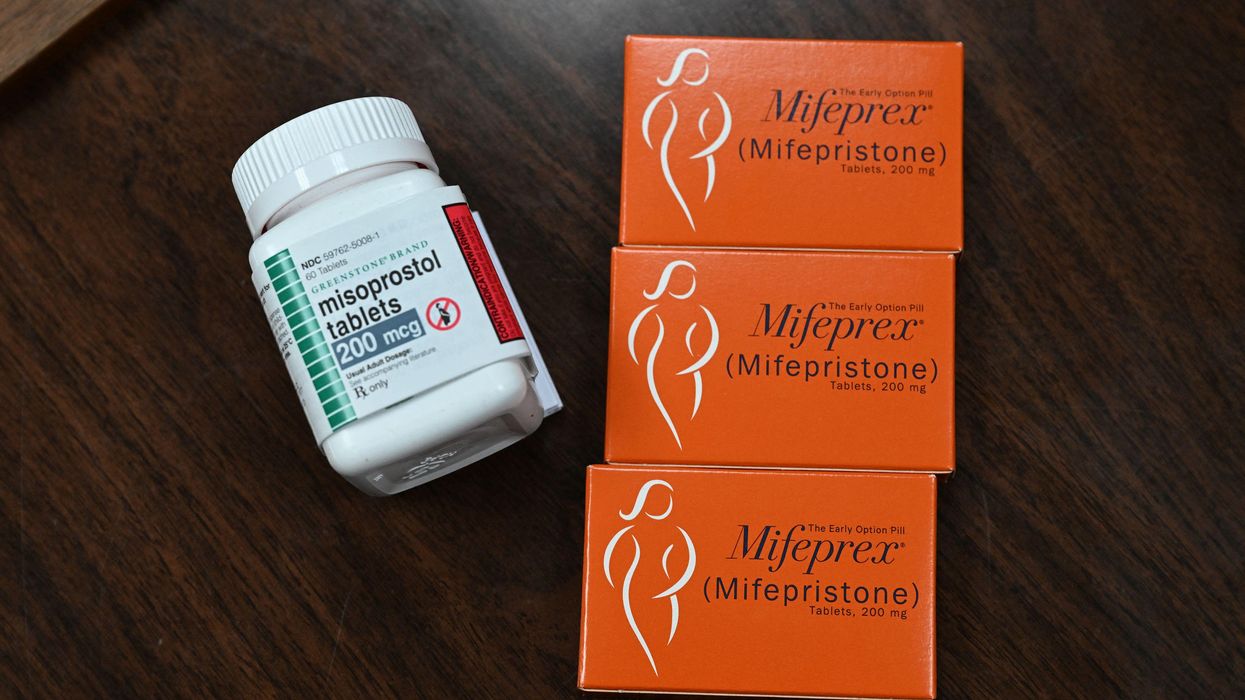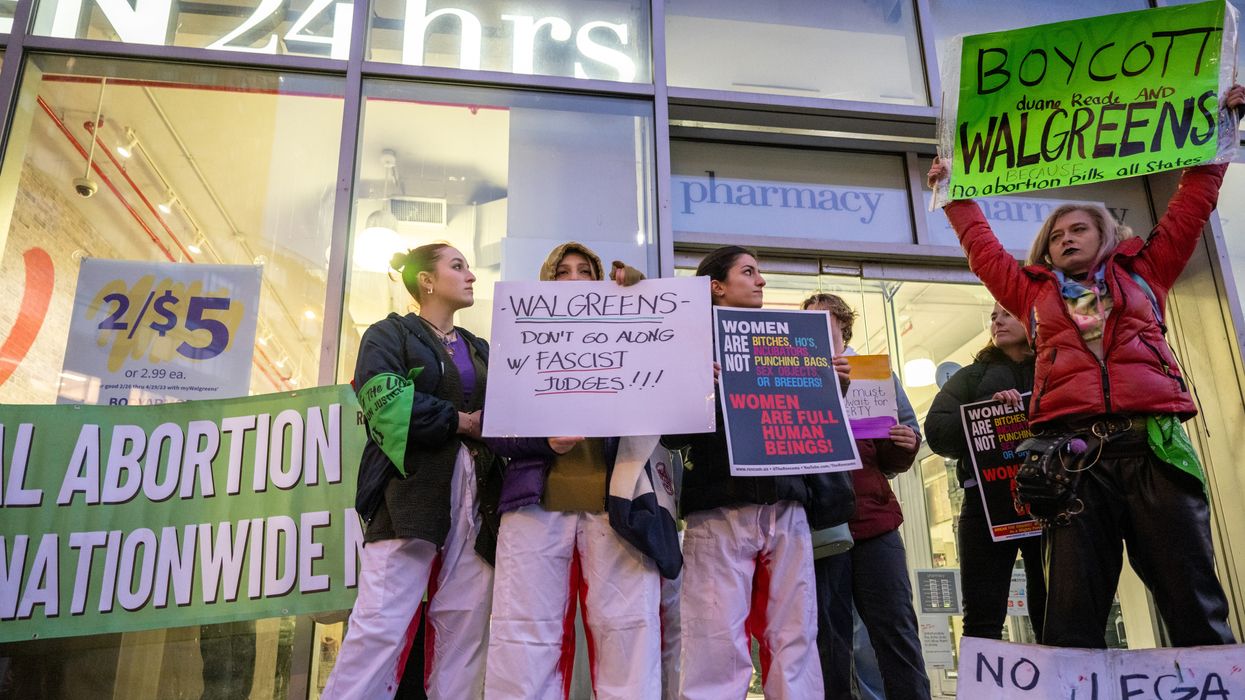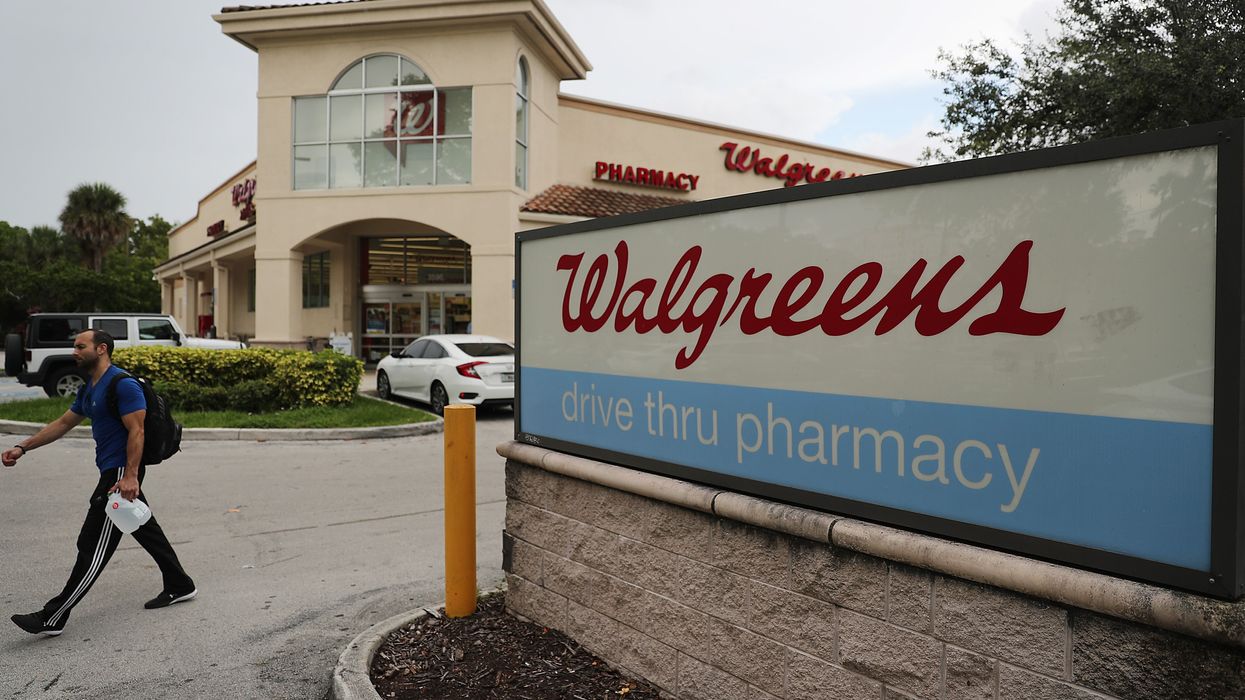The AGs wrote that federal law and many state laws prohibit "using the mail to send or receive any drug that will 'be used or applied for producing abortion,'" adding that "the text, not the Biden administration's view, is what governs."
After a yearslong study by the U.S. Food and Drug Administration (FDA) found that mifepristone is safe and effective to use without a doctor's visit, the agency in January updated a rule allowing retail pharmacies to sell the drug—part of the Biden administration's attempt to protect abortion access in the wake of the U.S. Supreme Court's June 2022 decision overturning Roe v. Wade, which unleashed a right-wing assault on reproductive freedom that experts say violates international human rights law.
As Politico first reported Thursday, Walgreens recently informed the AGs that it will not dispense mifepristone either by mail or at its physical stores in the 20 states where those officials are the top law enforcement officers.
Abortion in general, and medication abortion in particular, are still legal in some of the affected states, including Alaska, Iowa, and Montana.
Ashley Fairbanks wrote that "the only way to end corporate compliance with fascism is to impact their profits."
"Looks like it's time to boycott Walgreens," tweeted Corinne Blalock of Yale Law School. "I really can't get over how disgusted I am by... private corporations unilaterally denying millions of women's access to reproductive healthcare."
Calling Walgreens' move "absolutely awful," Sen. Tammy Duckworth (D-Ill.) warned that "this willful corporate choice will prevent so many women from choosing the healthcare they need and have a legal right to," and implored the company to "reverse course—immediately."
The FDA approved the use of mifepristone, taken in conjunction with misoprostol, for abortion within the first 10 weeks of pregnancy in 2000. Medication abortion became the most common method in the U.S. for terminating a pregnancy in 2020.
Walgreens' decision, meanwhile, underscores the extent to which abortion access varies in the post-Roe U.S., including in states where the GOP has not outlawed the healthcare procedure.
According toThe Associated Press:
Nineteen U.S. states have imposed restrictions on abortion pills, but there's a court battle over whether they have the power to do so in defiance of U.S. Food and Drug Administration policy. A physician and a company that makes the pill mifepristone filed separate lawsuits earlier this year seeking to strike down bans in North Carolina and West Virginia.
The FDA for more than 20 years limited dispensing of the drug to a subset of specialty offices and clinics because of safety concerns. But it eased restrictions since the start of the Covid-19 pandemic by eliminating the in-person requirement for the pill and allowing brick-and-mortar pharmacies to dispense it. At least one lawsuit filed by abortion opponents argues that the FDA has overstepped its authority in approving the abortion drugs.
A Walgreens spokesperson said Thursday that the company is not yet selling abortion pills anywhere in the country but is working to become eligible through the FDA's certification process, after which it "will dispense only in those jurisdictions where it is legal to do so."
E. Michael Murphy, the adviser for state government affairs for the American Pharmacists Association, told Politico that members of the group are struggling to navigate "blatant contradictions between state and federal law that make it very challenging to identify what is legal and what is not legal."
"We are very concerned with those reports," he said, "because we as pharmacists want to ensure the patients have access to the best possible care that's informed by evidence."
As Bloomberg reported:
The nation's biggest pharmacy chains announced in January that they planned to seek U.S. certification to sell the pills used in medication abortion, after the U.S. Food and Drug Administration loosened restrictions on where the drugs could be dispensed.
The attorney generals' February 1 letter was sent after the companies stated their intention. A rival missive was sent to executives at Walgreens and CVS by 23 Democratic state attorneys general two weeks later, urging them to ignore the legal threats from the GOP states.
According to Politico, "The group of Republican attorneys general, who argue that the Biden administration is misinterpreting the laws around mailing and dispensing abortion pills, also wrote to CVS, Albertsons, Rite Aid, Costco, Walmart, and Kroger demanding they, too, refuse to dispense the medication."
While "some independent and online pharmacies say they will seek certification to provide the drugs in these states, advocates warn that the impact of Walgreens' decision could significantly limit access," Politico noted.
Elizabeth Nash, a state policy expert at the Guttmacher Institute, told the outlet that forced pregnancy advocates and the pharmacy chain are "denying people agency over their lives."
"When we're thinking about states that have a lot of their population in rural areas, it's much more likely that a pharmacy is nearby than a provider's office," said Nash, "so these pharmacies play an outsized role in patient health and access to healthcare."


